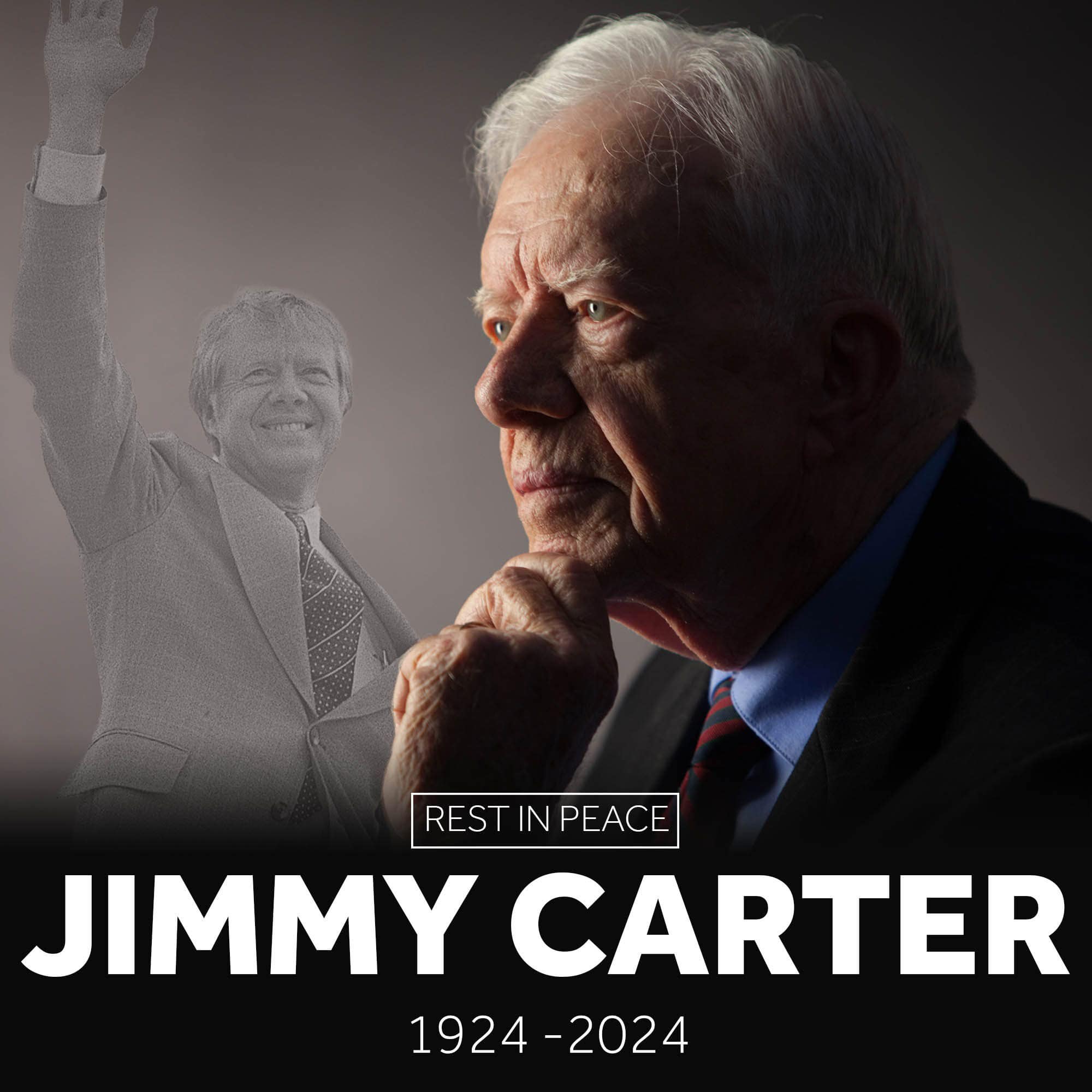Jimmy Carter, a former peanut farmer who rose to the highest office in the land during a turbulent time in American history, has passed away at the age of 100. Carter, a man devoted to humanitarian causes, spent decades redefining what it means to be a former president. Known for his resilience and devotion to public service, he leaves behind a legacy that extends far beyond his time in office.
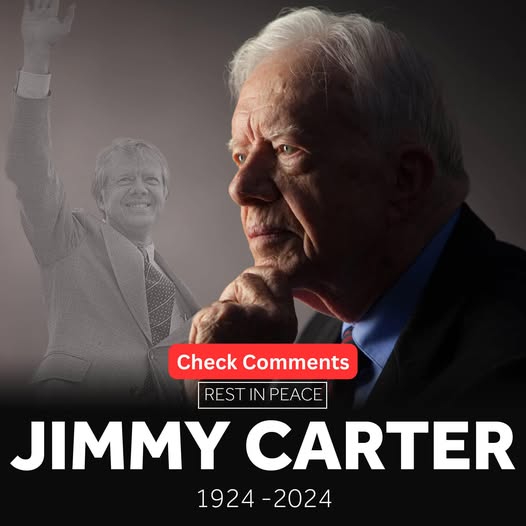
With a penchant for diplomacy and a commitment to peace, Carter’s post-presidency years were characterized by a continuing engagement in global issues. An outspoken advocate for democracy, human rights, and public health, he routinely involved himself in complex international matters, showcasing his belief that there was always work to be done to foster global harmony.
“Our founder, former U.S. President Jimmy Carter, passed away this afternoon in Plains, Georgia,” the center said in posting about his death on the social media platform X. It added in a statement that he died peacefully, surrounded by his family.
Emerging from Plains
Starting from humble beginnings in the small town of Plains, Georgia, Carter used his background as a moderate Democrat and religious upbringing to build a career aimed at restoring public trust in government. Carter’s entry into politics coincided with a tumultuous era of American history marked by scars from the Vietnam War and the Watergate scandal. He navigated these difficult waters with a firm moral compass, ultimately leading him to capture the presidency in 1976, signaling a fresh chapter for an America in search of healing.
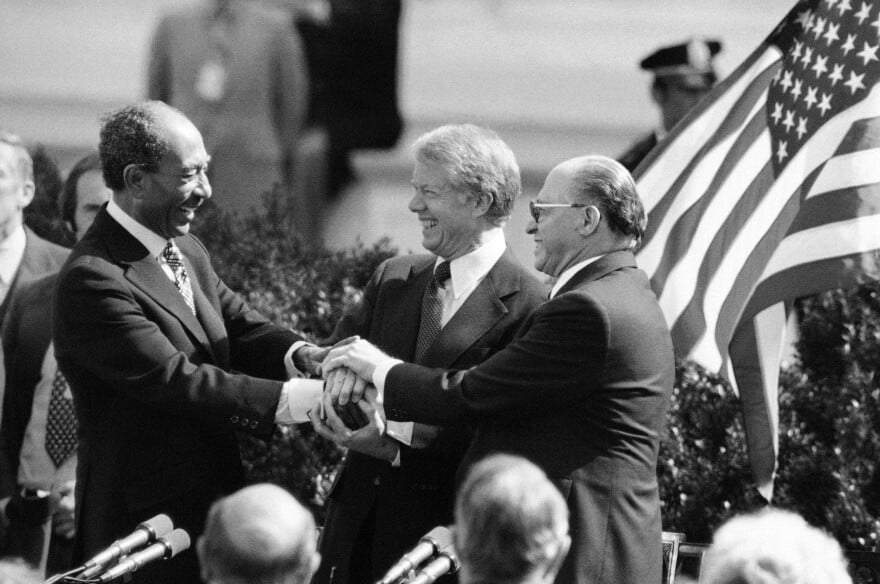
Carter’s tenure as president was marked by his commitment to peace, made evident by his pivotal role in negotiating a landmark peace agreement in the Middle East—a testament to his diplomatic skills. Yet, his presidency faced severe testing with economic woes, including steep inflation rates, and foreign policy challenges, notably the Iran hostage crisis, which tested his principles of peace and negotiation.
Navigating Challenges
Despite facing numerous political and economic challenges, Carter maintained a focus on human rights and democracy both domestically and internationally. His efforts to streamline federal governance and emphasize renewable energy showcased his long-term vision for a stronger nation less dependent on external oil. However, these forward-looking policies and his attempts to reduce Cold War tensions were often overshadowed by the immediate crises of his presidency.
Following his departure from the White House after a significant defeat by Ronald Reagan, Carter could have faded into quiet retirement. Instead, he embraced a new chapter, founding The Carter Center in 1982 alongside his wife, Rosalynn. Through this center, Carter pursued active roles in international peacekeeping and democratic advocacy, overseeing elections globally and mediating complex international disputes well into his later years.
A Legacy of Global Impact
Carter’s relentless dedication did not go unnoticed. His pioneering efforts in global peace and health initiatives earned him the Nobel Peace Prize in 2002, cementing his role as a tireless champion for global human rights and peaceful resolution of conflicts. He was known for his hands-on approach, building homes for the underprivileged with Habitat for Humanity, and successfully working to eradicate diseases such as the guinea worm.
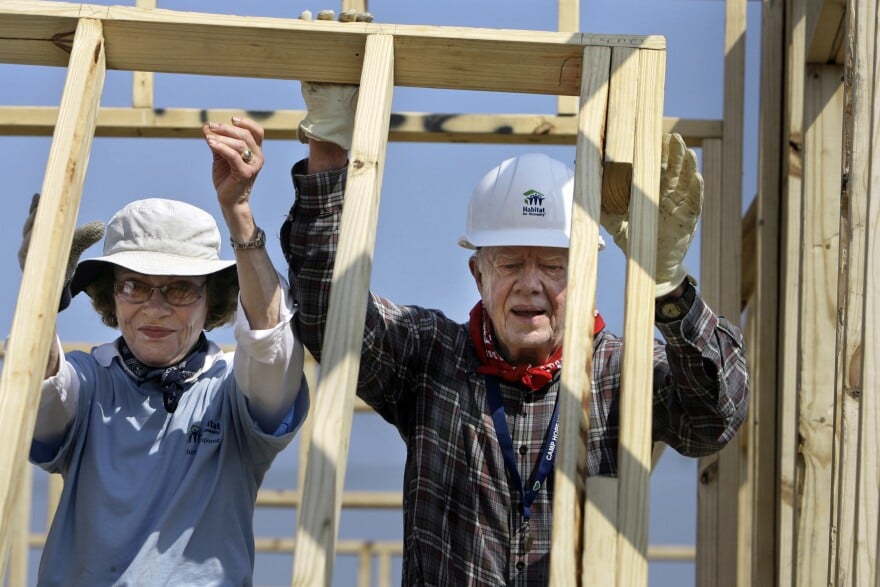
Carter’s profound and prolonged engagement with the world’s most challenging problems distinguished him from many of his contemporaries. His passing marks the end of an era in which one man dedicated his life to serving others, not just on a national scale but globally. His work set lasting precedents in the promotion of peace and democracy.
A Commemoration
Jimmy Carter’s journey from a small-town start through the corridors of power, and eventually to international humanitarian leadership, is illustrative of a life dedicated to service and bettering the human condition. He will be remembered as an exemplar of the very best kind of public servant—a leader who believed in the potential for politics to serve and uplift all people across the globe.
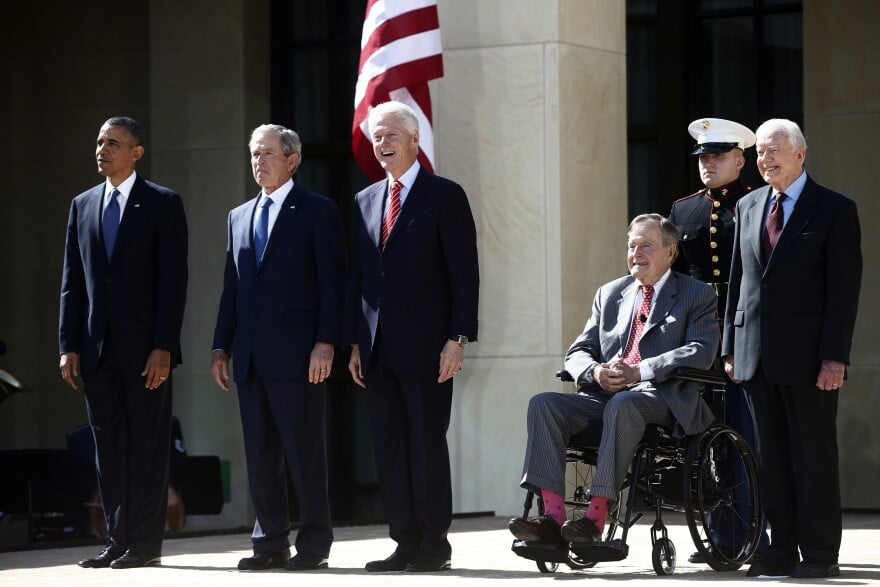
As global citizens reflect on the profound impact of his storied life, Carter’s legacy as a compassionate, tireless advocate for peace and democracy remains as relevant today as it ever was. His devotion to a life of service is a reminder of the enduring power of moral leadership in transforming the world.
